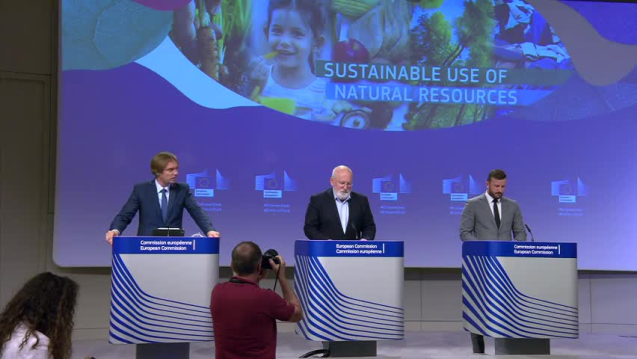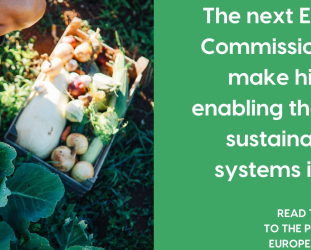EU Commission Unveils New Legislative Proposal for Sustainable Use of Natural Resources

The new EU Commission measures include a soil monitoring law to combat soil degradation, the establishment of NGT categories for plant modification, and targets to reduce food and textile waste.
Yesterday, the European Commission announced a comprehensive package of measures addressing a set of key components of the EU Green Deal, including soil health, new genomic techniques (NGTs), and food and textile waste reduction.
One of the key measures introduced is the adoption of a soil monitoring law. Currently, 60 to 70% of soils in the EU are deemed unhealthy, with erosion causing the loss of a billion tonnes of soil annually. The associated costs of soil degradation are estimated to exceed €50 billion per year. To combat this issue, the proposed legislation establishes a harmonized definition of soil health and sets up a comprehensive monitoring framework. By combining data from various sources, the EU aims to achieve healthy soils by 2050.
Another important aspect addressed in the package is the use of New Genomic Techniques (NGTs). The proposed legislation establishes two categories of plants obtained through NGTs, each subject to different requirements and risk assessments:
 NGT-1, obtained through cisgenesis and site mutations and leading to results that are supposed to be reachable throughout conventional breeding and/or classic mutation techniques or by natural mutations
NGT-1, obtained through cisgenesis and site mutations and leading to results that are supposed to be reachable throughout conventional breeding and/or classic mutation techniques or by natural mutations NGT-2, which is referred to other kinds of genetic alteration leading to results which are not expected to occur in nature or through natural processes
NGT-2, which is referred to other kinds of genetic alteration leading to results which are not expected to occur in nature or through natural processes
Addressing the issue of food and textile waste is another important component of the package. Currently, nearly 59 million tonnes of food are wasted in the EU each year, with a market value of €132 billion. By setting targets to reduce food waste by 10% in processing and manufacturing and by 30% per capita in retail and consumption by 2030, the EU aims to promote food security, save money, and reduce the environmental impact of food production and consumption. Similarly, measures to address textile waste aim to ensure the separate collection of textiles, which would otherwise end up in landfills or incineration facilities, thereby conserving limited natural resources.
The proposed measures will now undergo the ordinary legislative procedure, involving discussions and negotiations between the European Parliament and the Council.
Latest News

FPC Calls for Urgent Action Towards Sustainable Food Systems
Euro Coop co-signed a Food Policy Coalition open letter urging the EU Commission to elevate...

Euro Coop Position on New Genomic Techniques
Euro Coop calls on the EU legislators to uphold the strict regulation and avoid any...
Latest Stories

Board meeting in Brussels
On 25 November, Euro Coop convened in Brussels for the Board meeting which took place in the...


